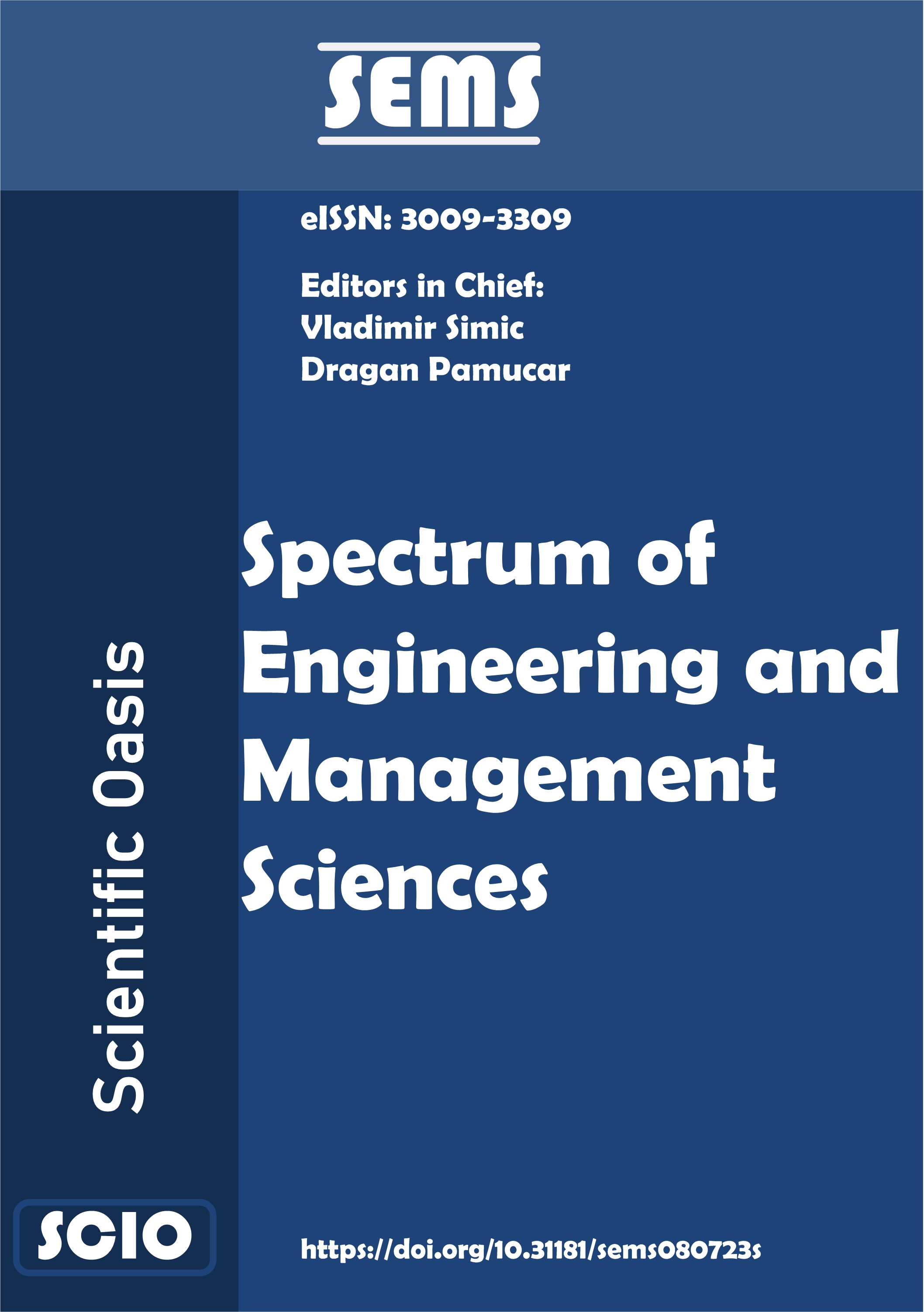An Ontological Model to Enhance Traffic Conditions in Smart City Domain
DOI:
https://doi.org/10.31181/sems1120246mKeywords:
Knowledge Management, Smart City, Ontology, TransportationAbstract
The rising trend of the increasing interconnection of city services refers to the growing integration and interconnectedness of various urban systems and services through the utilization of technology and data. One of the primary objectives of smart city initiatives is to establish more efficient and sustainable urban environments by optimizing resource utilization and infrastructure. In this paper, we introduce a traffic ontology named "TrafCsOnto," which encompasses a comprehensive range of traffic concepts. The primary aim of this ontology is to address traffic congestion issues within the smart city context. The formalization of this ontology has been carried out using the OWL language and the protégé tool. We endeavor to illustrate the practical application of the traffic ontology through the manipulation of real-world instances and inferences.
References
Hall, P. (2000). Creative cities and economic development. Urban Studies, 37(4), 639–649. https://doi.org/10.1080/ 00420980050003946.
Batty, M., Hudson-Smith, A., & Maguire, P. J. (2012). Smart cities of the future. The European Physical Journal Special Topics, 214(1), 481-518. https://doi.org/10.1140/epjst/e2012-01703-3.
Albino, V., Berardi, U., & Dangelico, R. M. (2015). Smart cities: Definitions, dimensions, performance, and initiatives. Journal of Urban Technology, 22(1), 3-21. https://doi.org/10.1080/10630732.2014.942092.
Persaud, T., Amadi, U., Duane, A., Youhana, B., & Mehta, K. (2020). Smart City Innovations to Improve Quality of Life in Urban Settings. 2020 IEEE Global Humanitarian Technology Conference (GHTC).
Pliatsios, A., Kotis, K., & Goumopoulos, C. (2023). A systematic review on semantic interoperability in the IoE-enabled smart cities. Internet of Things, 22, 100754. https://doi.org/10.1016/j.iot.2023.100754.
Wahl, Z. (2018). What is the knowledge management and why is it important? https://www.kminstitute.org/blog/what-knowledge-management-and-why-it-important.
Chang, D. L., Sabatini-Marques, J., Da Costa, E. M., Selig, P. M., & Yigitcanlar, T. (2018). Knowledge-based, smart and sustainable cities: a provocation for a conceptual framework. Journal of Open Innovation: Technology, Market, and Complexity, 4(1), 5. https://doi.org/10.1186/s40852-018-0087-2.
Abdalla, W., Renukappa, S., Suresh, S., & Al-Janabi, R. (2019). Challenges for managing smart cities initiatives: An empirical study. In 3rd International Conference on Smart Grid and Smart Cities (ICSGSC) (pp. 10-17), IEEE. http://dx.doi.org/10.1109/ICSGSC.2019.00-26.
Gruber, T. R. (1993). A translation approach to portable ontologies. Knowledge Acquisition, 5(2), 199-220. https://doi.org/10.1006/knac.1993.1008.
De Nicola, A., & Villani, M. L. (2021). Smart City Ontologies and Their Applications: A Systematic Literature Review. Sustainability, 13(10), 5578. https://doi.org/10.3390/su13105578.
Fernandez, S., Hadfi, R., Ito, T., Marsa-Maestre, I., & Velasco, J. R. (2016). Ontology-based architecture for intelligent transportation systems using a traffic sensor network. Sensors, 16(8), 1287. https://doi.org/10.3390/s16081287.
Abberley, L., Gould, N., Crockett, K., & Cheng, J. (2017). Modelling road congestion using ontologies for big data analytics in smart cities. In 2017 International Smart Cities Conference (ISC2) (pp. 1-6), IEEE. https://doi.org/10.1109/ISC2.2017.8090795.
Syzdykbayev, M., Hajari, H., & Karimi, H. A. (2019). An Ontology for Collaborative Navigation Among Autonomous Cars, Drivers, and Pedestrians in Smart Cities. In 4th International Conference on Smart and Sustainable Technologies (SpliTech). https://doi.org/10.23919/splitech.2019.878304.
De Oliveira, K. M., Bacha, F., Mnasser, H., & Abed, M. (2013). Transportation ontology definition and application for the content personalization of user interfaces. Expert Systems with Applications, 40(8), 3145–3159. https://doi.org/10.1016/j.eswa.2012.12.028.
Houda, M., Khemaja, M., Oliveira, K., & Abed, M. (2010). A public transportation ontology to support user travel planning. In Fourth International Conference on Research Challenges in Information Science (RCIS). https://doi.org/10.1109/rcis.2010.5507372.
Noy, N. F., & McGuinness, D. L. (2001). Ontology development 101: A guide to creating your first ontology.
Gruninger, M. (1995). Methodology for the design and evaluation of ontologies. In Proc. IJCAI'95, Workshop on Basic Ontological Issues in Knowledge Sharing.
Hummel, B., Thiemann, W., & Lulcheva, I. (2008). Scene understanding of urban road intersections with description logic. Schloss-Dagstuhl-Leibniz Zentrum für Informatik.
Protégé. https://protege.stanford.edu/.
Mejri, H. (2012). Un système d’aide à la régulation d’un réseau de transport multimodal perturbé: réponse au problème de congestion. Doctoral Dissertation, Ecole Centrale de Lille.
Downloads
Published
Issue
Section
License
Copyright (c) 2024 Scientific Oasis

This work is licensed under a Creative Commons Attribution-NonCommercial-NoDerivatives 4.0 International License.













